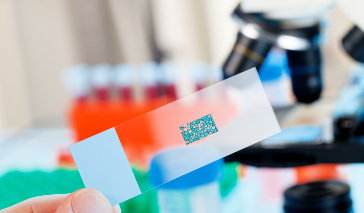Several chromosomal abnormalities in sperm can cause male infertility. One small study in 2006 suggested that these types of chromosome problems in sperm may occur more frequently in men who have had a vasectomy reversal.
Another small 2008 study, though, found that men undergoing a vasectomy reversal did not have an increased risk of having an abnormal number of chromosomes. These men had their reversal five to nine years after their original vasectomy.
Little research has been done in this area since then. Still, even without chromosomal abnormalities, vasectomy reversals may not be 100 percent effective.
Male infertility and chromosomes
Research has found that 2 percent of men with low sperm counts have chromosomal abnormalities. In men with no sperm in their semen, this increases to 15 to 20 percent.
Some of the more common chromosomal abnormalities that can cause male infertility include:
- Klinefelter syndrome - This occurs when a man has an extra “X” sex chromosome.
- Y chromosome microdeletion - In this condition, pieces of the Y sex chromosome are deleted or missing. If these areas are ones that “code” for male fertility, it can cause infertility.
- Cystic fibrosis gene mutation. This occurs in both men and women, but some forms of the cystic fibrosis mutation can cause infertility in men.
- Balanced translocation. This occurs when genetic information is exchanged. It may not cause noticeable health problems for the person, but can lead to infertility or miscarriage.
Genetic testing for chromosomal abnormalities
Chromosomal abnormalities can be detected with a special genetic test. Not every man with fertility problems will undergo this type of testing. A doctor may suggest testing for one of the following reasons:
- very low sperm count or no sperm in the semen
- physical exam showing small testicle size or lack of one or both vas deferens
- several miscarriages for the couple
- a personal or family history of conditions that are known to affect fertility
Three of the most common genetic tests in cases of male infertility are:
- Karotype or chromosome analysis - This test looks at the chromosomes to see if there are the correct number (46), if they occur in the right “set-up”, and if there are missing or extra chromosomes, or if large sections of the chromosomes are missing or present in extra amounts.
- Y chromosome microdeletion test - This test looks specifically at the Y chromosome to see if parts are missing that might affect the normal production of sperm.
- Cystic fibrosis gene test - This test looks at the cystic fibrosis gene to see if there are mutations (misspellings) that may cause male infertility.
Genetic testing can help doctors know the chance that healthy sperm will be found in the testicles. Doctors will also be able to advise couples whether a chromosomal abnormality can be passed onto their children.
Reduced fertility after vasectomy reversals
Vasectomy reversal is not always effective, so this can affect a man’s fertility. The success of the procedure depends upon many factors, including:
- skill of the surgeon
- procedure used
- presence of sperm in the fluid of the vas deferens at the time of surgery
Vasovasostomy - During this procedure, two sections of the vas deferens are connected to form a channel through which the sperm can pass. When sperm are present in the fluid of the vas during surgery, 85 to 99 percent of men will eventually have sperm in their ejaculate. If the female partner is healthy, 40 to 65 percent of couples will have a successful pregnancy.
Epididymovasostomy - This procedure involves connecting the vas deferens to the epididymis. This is done when no sperm are found in the vas fluid. Around 60 to 80 percent of men who undergo this procedure will eventually have sperm in their semen. With a healthy female partner, the pregnancy rate is 30 to 35 percent.
Updated on July 18, 2016


